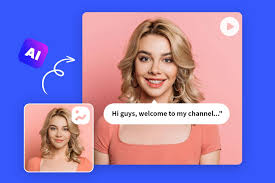With modern technological advances and numerous resources at people disposal depending on their particular needs, finding free voice clone options is becoming easier to come by.
For voice cloning, there are both commercial and open-source platforms like Mozilla's TTS that fits the bill for those looking to deploy a more robust implementation without large financial resources. Mozilla Deep Speech. It is a text-to-speech engine that supports voice cloning by training it on custom datasest. Mostly, the cost of training a model on this platform is around $100 to $500 depending upon your dataset(size) and computing power (RAM). The system is highly customizable, which has been key in supporting users who need their voice output to sound a certain way.
The other option is the free voice cloning offered by DUPDUB. Developers can create their voice clone in minutes by uploading a few min-long audio recordings on the free tier of DUPDUB. It serves as a low-barrier introduction to the technology for people who want to play around with voice cloning. The free version offers basic features that you can use but if you need further advanced functionalities, they come with a premium plan starting at around $10 to $50 per month.

Academic institutions and research organizations also often offer free voice cloning models for learning and educational use cases. An example of such an initiative being the largest neural network for text-to-speech synthesis, Google's Tacotron 2 is open to research collaborations. Google models have some of the best voice cloning capabilities available and they are frequently employed in academia to help drive forward new research. Usually, this privilege can be obtained only through institutional collaborations or independent research arrangements and thus might not be the best for individual academics.
In addition, OpenAI's Jukebox uses the same underlying tech (deep learning) for creating music and voices so that is another type of voice cloning to consider. These models as of now are open source and available for research purpose directly through partners on OpenAI. These models are state of the art in terms of voice cloning and also play a big part to extend boundaries using speech synthesis technologies.
There are many resources available to investigate the voice cloning free landscape, which is an evolving one. Users can have high-quality voice cloning tools, from open-source platforms to online services and even through an academic partnership that allows anyone free access.